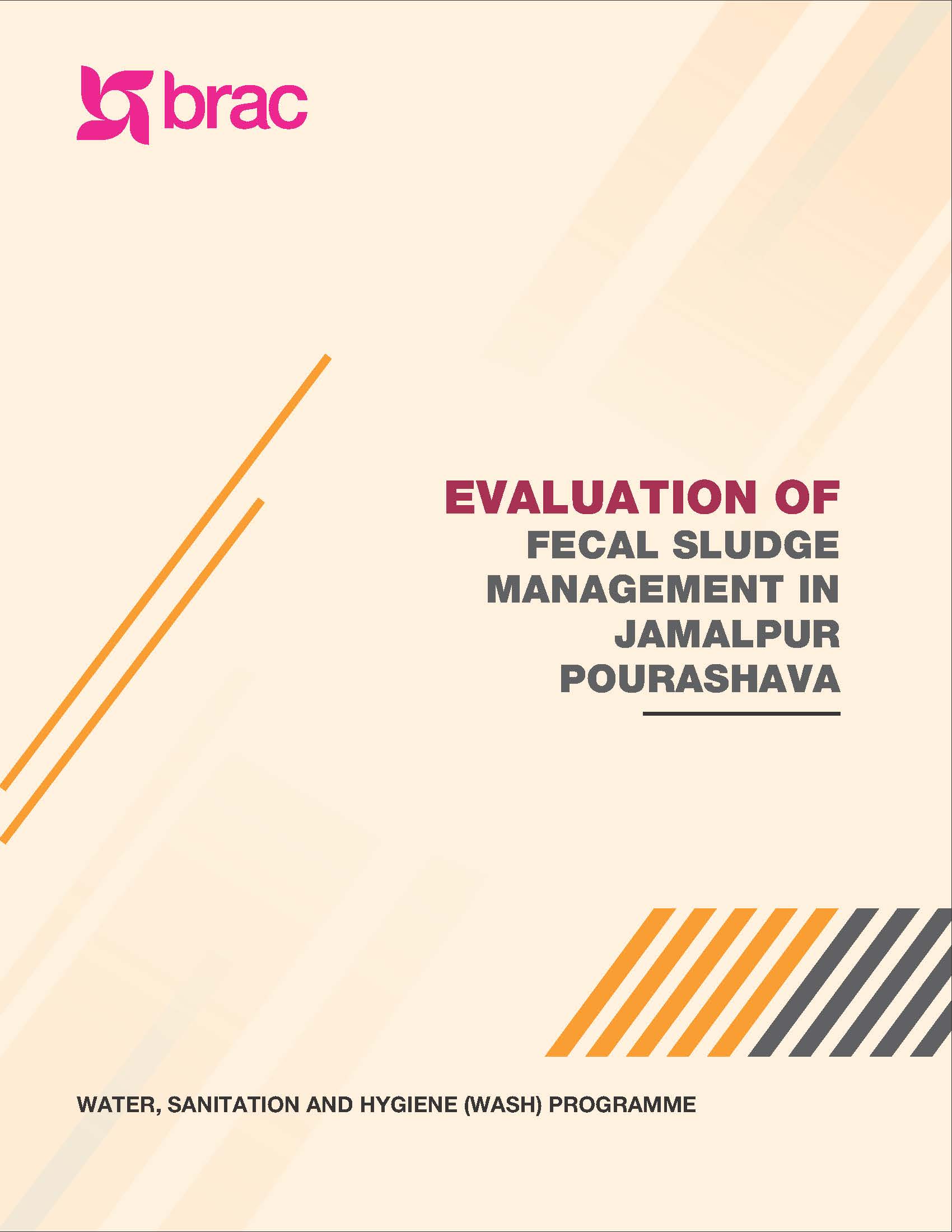Evaluation of Fecal Sludge Management in Jamalpur Pourashava
Publisher(s): BRAC

Category(s): Books & Proceedings
Language: English
Publication Year: 2022
Document Type: pdf
The study was carried out based on literature review, secondary data/information from different sources (national and local level), and collection of data/information from Jamalpur Pourashava using a mixed method. Household level questionnaire survey was conducted for quantitative data collection from two separate groups: users of mechanical emptying service and potential users who are yet to avail mechanical emptying service. In addition, six focus group discussion (FGD) with different groups (e.g., pit emptiers, treatment plant operators, solid waste collectors, farmers, etc.) and several key informant interviews (KII) with Pourashava officials and other local stakeholders were conducted to collect qualitative information on the FSM service in Jamalpur Pourashava. In addition, rapid technical assessment of containment, trip time assessment, wastewater and co-compost testing were done. Available data from secondary sources (e.g., record files) on number of trips made, generation of co-compost, income/expenditure were also collected. The analyses focused on finding the coverage of FSM services providing collection and transportation services, performance of fecal sludge treatment plant (FSTP) in treating FS and producing co-compost, and other aspects that help ensuring sustainability of the service. Finally, a validation workshop was organized in Jamalpur Pourashava where the findings from the analyses were shared with staleholders and their feedback was collected.
Focus Area
FSM
Keywords
Evaluation, Fecal Sludge Management
Copyright
This is an open access work distributed under the terms of the Creative Commons Attribution License, which permits unrestricted use, distribution, and reproduction in any medium, provided the original work is properly cited.
No comment yet.